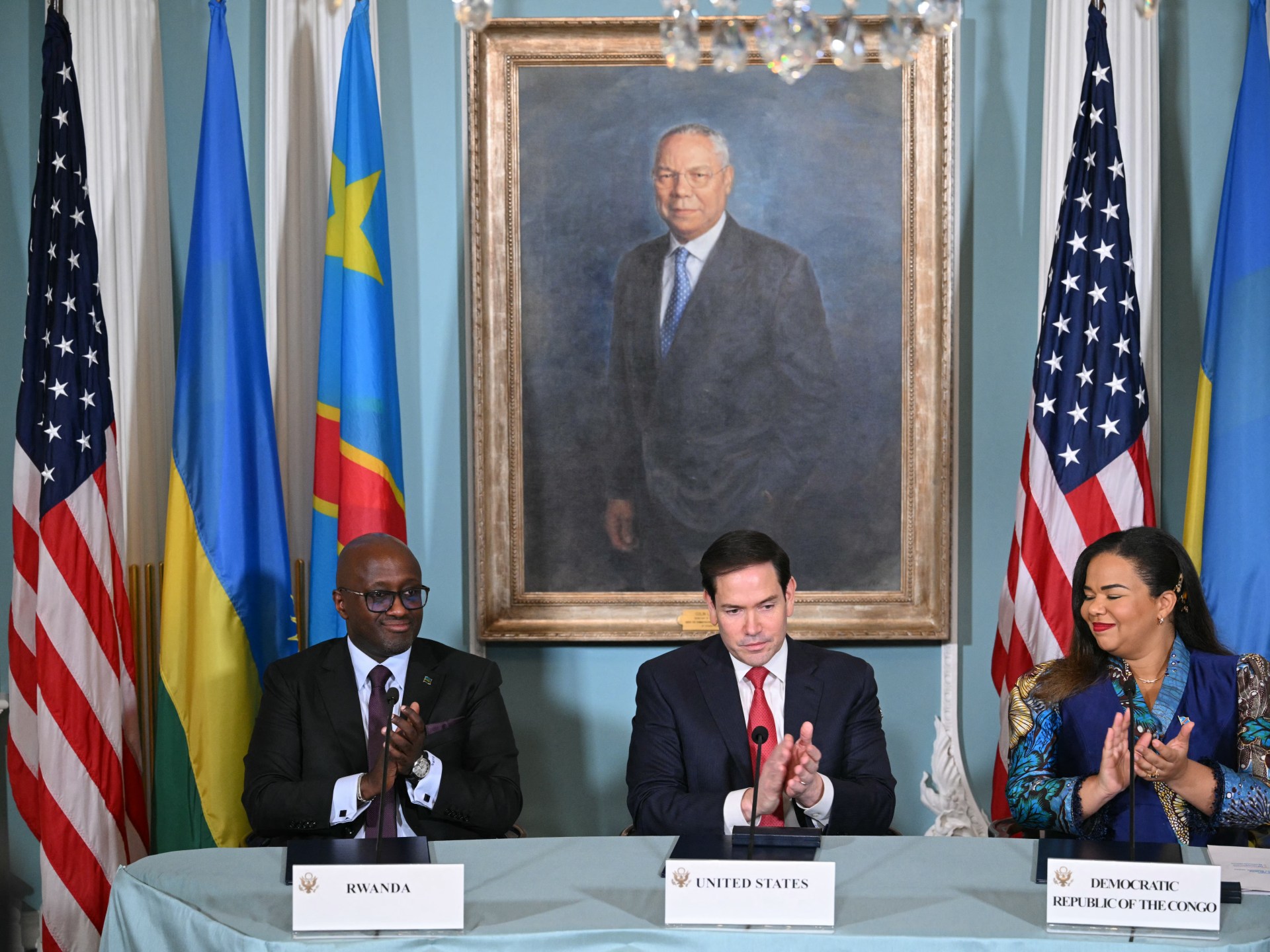The Democratic Republic of the Congo (DRC) and Rwanda have formalized a peace agreement in Washington, DC, aiming to resolve years of hostilities between the two neighboring nations. The pact was officiated on Friday by the foreign ministers of both countries in a meeting at the White House, facilitated by mediators from the U.S. and Qatar.
The terms of the agreement require Kinshasa and Kigali to initiate a regional economic integration framework within 90 days and establish a joint security coordination mechanism within 30 days. Additionally, it includes the withdrawal of thousands of Rwandan troops from the DRC over the next three months, a significant step amid ongoing violence linked to Rwanda-supported M23 rebels, particularly in the mineral-rich provinces of North and South Kivu.
This conflict, which has seen an increase in violence this year, has already resulted in thousands of deaths and the displacement of hundreds of thousands since January. The tensions can be traced back decades, rooted in the aftermath of the 1994 Rwandan genocide.
Congolese Foreign Minister Therese Kayikwamba Wagner reflected on the significance of the agreement, stating, “This moment has been long in coming. It will not erase the pain, but it can begin to restore what conflict has robbed many women, men, and children of safety, dignity, and a sense of future.” She emphasized that to make the agreement meaningful, it must lead to “disengagement, justice, and the return of displaced families, and the return of refugees, both to the DRC and Rwanda.”
Rwandan Foreign Minister Olivier Nduhungirehe described the agreement as a “turning point,” asserting the need for a definitive end to the support DRC provides to the Democratic Forces for the Liberation of Rwanda (FDLR), a group associated with the genocide. The deal stipulates the “neutralization” of the FDLR, although it does not specify a timeline for the M23 rebels’ withdrawal, raising concerns on the ground about future stability.
In a report from Goma, Al Jazeera’s Alain Uaykani noted that while the deal represents progress, there is uncertainty regarding the specifics of implementing the withdrawal of M23. He pointed out that the rebels continue to exert control over key areas, appointing governors and managing airports in North and South Kivu.
Despite ongoing denial from Rwanda regarding its support for M23, reports from the DRC, the United Nations, and analysts indicate otherwise. The agreement does not explicitly tackle the territorial gains made by M23 but focuses on Rwanda ceasing any “defensive measures” taken in the conflict.
Beyond the immediate implications for peace, the deal is expected to enhance U.S. access to crucial minerals like tantalum, gold, cobalt, copper, and lithium, which are vital for modern technology during a period of intense U.S.-China competition for influence in Africa.
On Friday, President Trump remarked, “We’re getting, for the United States, a lot of the mineral rights from the Congo as part of it. They’re so honoured to be here. They never thought they’d be coming.” The DRC is known to possess untapped mineral deposits valued around $24 trillion, with officials stating they are losing approximately $1 billion annually to illegal mining linked to the ongoing conflict.
The agreement’s facilitation was handled by Massad Boulos, a Lebanese-American businessman and senior advisor on Africa appointed by Trump. U.S. Secretary of State Marco Rubio, who presided over the signing at the Department of State, pointedly highlighted the importance of the agreement, stating, “It’s about allowing people to live… for all the things that make life worth living. Those things become impossible when there’s war and when there’s conflict.”
While analysts recognize this agreement as a significant milestone, many remain cautious about its potential to swiftly conclude the ongoing violence that has claimed millions of lives since the 1990s.

